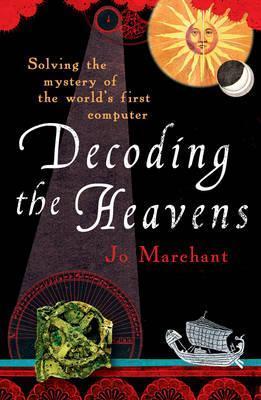1. Around 1900, a major find is found near Antikythera during a sponge search; for a long time, it is being searched by Greeks (who are recently, and not completely, independent and proud about it). For the first time in such cases, underwater archaeology produces results (a previous attempt to lift the traces of the Salamis battle was unsuccessful). However, the technology is still in its infancy: bends are ubiquitous and generally disregarded; underwater workers are never acknowledged. The 'mechanism' finds itself among other garbage from the site in a museum in Athens.
2. Soon, the remains of the device (damaged by neglect and air — a review of what happens to copper, bronze, iron and steel underwater and in other circumstances is included) were discovered, and, though it was virtually impossible to read (and there was a whole chunk of text without spaces), it was obvious that it was a very complex mechanism, something that did not seem probable for antiquity. Examples of gears were spotted in books (including a chariot 'taxometer', for example, and a number of inventions, such as the 'eternal screw', of Archimedes and his friends and followers), but there was nothing as complex as this. Researchers who contributed to the study were rear admiral John Theophanidis, the German expert Albert Rehm (who suffered during WWII and after, being a maverick opposed both to the Nazis and to the victors in the war), Rados, Rediadis etc. (an astrolabe, he claimed, even though it did not seem to be, being too complex and carried around in a box, like a typical onboard sea instrument). However, after the occupation and WWII the device sank into oblivion.
3. Decades pass; the chapter is spent in trying to define the origin of the wreck. Various methods are brought into play, including radiocarbon dating (which is faulty because the center of the trees is soon virtually dead even while the tree grows), underwater research (two attemps are made by Cousteau and his team at various times) and so on; the location could be Rhodos; Alexandria; Pergam — but probaby not the mainland or Athens. A stack of coins is found during the second Cousteau's attempt, and the wreck is tentatively dated to the 1st C BC.
4. Rewriting History. 4. A Heroic Reconstruction. 6. The Moon in a Box. 7. Mechanic's Workshop. 8. The New Boys. 9. A Stunning Idea. 10. Old Man of Syracuse.
All in all, research continues, and a new mysterious artefact is presented in another museum. People from London's Science Museum team up, an Austrialian makes an appearance, old ideas are discarded, the device is measured using cutting-edge new technologies (by a company who hopes to improve its technology to scan airplane propellers). After all the efforts, the decision is that it seems to be a specialized (but not used by specialists, because there are lots of instructions for lay people) device which defines the dates of eclipses and the like — a 19-year cycle is involved, after which the device should be manually reset. There are questions and mysteries that remain, but all in all, this is what it seems to be — and it certainly proves that the ancient world was not without its hi-end technology.
A very passionate and interesting book.


